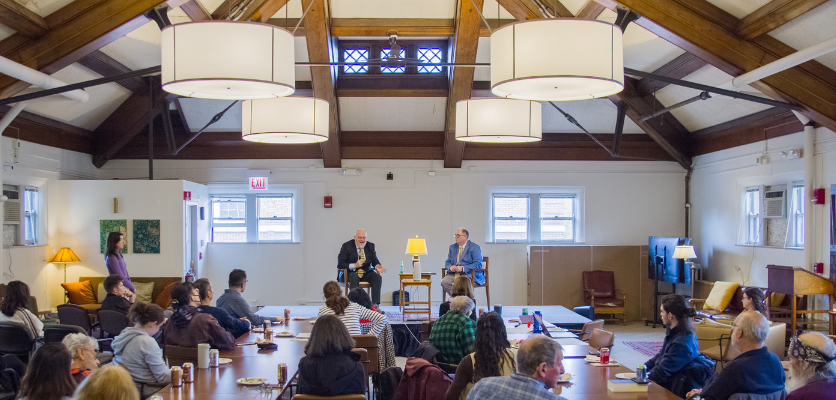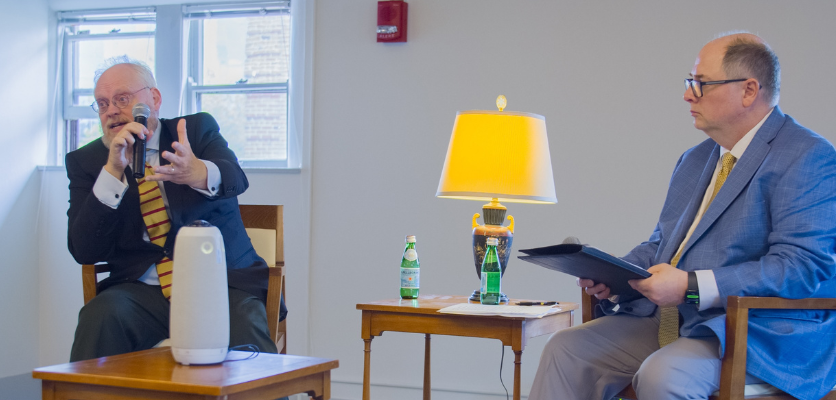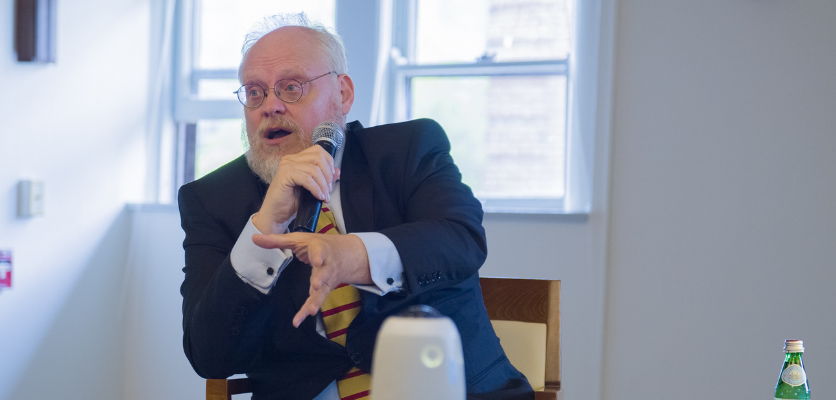America’s Soft Power & Reputational Security in Crisis?
Conversation with Nicholas J. Cull
Northwestern University's Buffett Institute for Global Affairs and Center for Communication & Public Policy hosted a conversation with esteemed historian and academic Nicholas J. Cull from the University of Southern California to explore his concept of "reputational security"—the idea that a nation's safety and security are strengthened by its soft power and being well-regarded internationally. In conversation with Erik C. Nisbet, Owen L. Coon Endowed Professor of Policy Analysis & Communication at Northwestern's School of Communication, Professor Cull provided historical context for recent actions by the Trump administration, including the dismantling of USAID and the Voice of America, freezing of foreign aid, pivot toward Russia, trade wars with close allies, and policy rhetoric about Greenland, Panama Canal and Gaza. He also discussed how these policies impact America's global standing and how they pose risks to its national security and that of others.

"If a country has a positive reputation, everything is made easier because people, both within a country and outside of it, have a degree of trust. It's easier for that country to generate alliances or come to a consensus on a difficult issue. For countries that don’t have that reputation, they are perpetually walking uphill. People are skeptical or untrusting. The same event may be addressed completely differently depending on a country's reputation."

"People in the US assume that the US is the most admired country in the world. This may be, in part, because the US invented a capitalist democracy that became the model in other places around the world, and was an achievement of the country irrespective of whether other models of governing have been created. If the US is most admired for its social mobility, mass prosperity, and social equality, maybe other countries are doing a better job at 'being' America right now where it really counts. The breakdown of America's ethics will be troubling for the US in the long term."

"Reputation doesn't just come from presidents, it comes from ordinary people and individual interactions. It's within all of our power to help or hurt the reputation of the US. Connecting people with similarities across geopolitical lines and creating relationships with those outside of the US and letting them know we, as Americans, are not as they may assume. It's in our hands as US residents to show people that American hospitality still exists. The best guarantee of a good reputation is to create a good reality."
